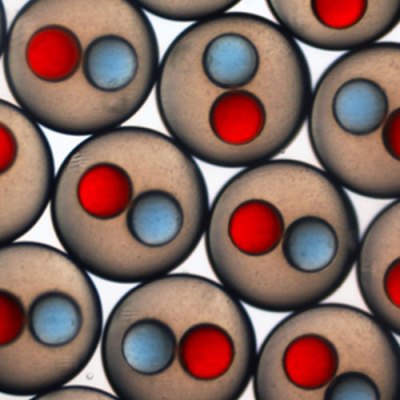Over 200 scientists have participated in the symposium on pharmaceutical nanoformulations of the BASF Advanced Research Initiative at Harvard University, to discuss the issues of advanced medicine and explore the opportunities of groundbreaking nanotechnology-based solutions.
 Researchers at Harvard are investigating new methods of creating and delivering nanoparticles of drugs. Microfluidics and double emulsions hold promise in this field. (Photo by Laura Adams, Weitz Lab)
Researchers at Harvard are investigating new methods of creating and delivering nanoparticles of drugs. Microfluidics and double emulsions hold promise in this field. (Photo by Laura Adams, Weitz Lab)
BASF and the Harvard School of Engineering and Applied Sciences (SEAS) co-hosted the two-day conference conducted at the American Academy of Arts and Sciences located in Cambridge. The synthesis of the accurately customized drug nanoparticles and their target-specific delivery into the human body is the major challenge in the nanoformulation field. BASF encourages scientists at Harvard and SEAS who are researching on various solutions to tackle this challenge.
David Weitz, the BASF Advanced Research Initiative’s Co-Director and SEAS’ Mallinckrodt Professor of Physics and Applied Physics, stated that microfluidics can be used as a production method to produce significant amounts of nanomaterials.
BASF Advanced Research Initiative at Harvard University, an industry-academic partnership established in October 2007, offers direct financing to researchers, graduate students and faculty at Harvard University and SEAS. The program promotes knowledge transfer and development of novel technologies. The partnership has produced numerous publications and patents.
BASF fosters research at Harvard University’s nine different labs focusing on fields, including chemical biology, chemistry, immunobiology, microbiology, molecular and cellular biology, bioengineering, applied physics, applied mathematics and material science. Nanopharmaceuticals is also a part of the research, which includes the prevention or removal of biofilms, a form of bacterial growth that is capable of causing harmful infections and a major problem in water management and industrial processes.